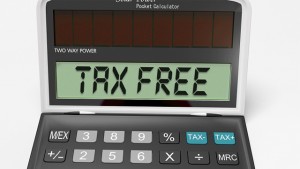 ST. JOHN’S, Antigua and Barbuda, Friday January 22, 2016 – Workers in Antigua and Barbuda will get a tax ease from April when government abolishes Personal Income Tax (PIT).
ST. JOHN’S, Antigua and Barbuda, Friday January 22, 2016 – Workers in Antigua and Barbuda will get a tax ease from April when government abolishes Personal Income Tax (PIT).
Prime Minister Gaston Browne, who made the announcement in his Budget presentation in Parliament yesterday, said it was in keeping with his Antigua Labour Party’s (ALP) campaign promise.
The PIT was introduced by the United Progressive Party after it took office in 2004. People who take home a monthly pay pack above EC$3,500 (US$1,296) but less than EC$25,000 (US$9,259) are taxed at a rate of eight per cent, while those earning more than EC$25,000 (US$9,259) pay almost double – 15 per cent – in PIT.
“Effective April 2016, Personal Income Tax will be abolished in its entirety. That was a major campaign promise, and my Government honours its word to the people. Promise made, promise kept,” Browne said.
“Abolishing Personal Income Tax is an important reform. Not only will it put more money in the pockets of the people, so that they can save or spend more for the benefit of the economy as a whole, it will help to re-establish our country as one of the most competitive in the Caribbean and beyond. Mr. Speaker, abolishing the PIT will put over EC$30 million (US$11.1 million) back into the pockets of people.”
The prime minister noted that because of the cost of collecting PIT, the difficulty of enforcement, and its “unfairness”, it made sense to remove the tax and there would be several other benefits to the move.
“Antigua and Barbuda will become a competitive location to attract the headquarters of companies and for professionals to relocate, thereby creating more jobs. Retirees will choose Antigua and Barbuda as their retirement home; CIP [Citizenship by Investment Programme] investors will invest and choose Antigua and Barbuda over our competitors,” he explained.
Browne pointed out that previous ALP administrations had governed the twin-island nation successfully for 27 years without PIT.
He also explained that the EC$37 million (US$13.7 million) shortfall from the elimination of the tax would be partially covered by an increase in the Revenue Recovery Charge (RRC), from 10 per cent to 13 per cent, which is expected to yield an additional EC$20 million (US$7.4 million) in revenue.
All food items in the basket of Antigua and Barbuda Sales Tax-free goods will be exempt from the RRC increase, Browne said.
